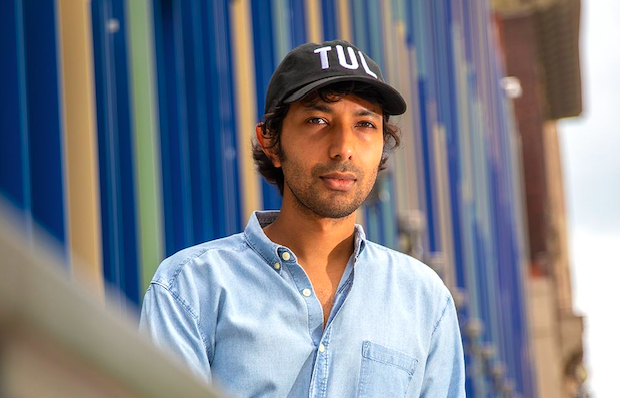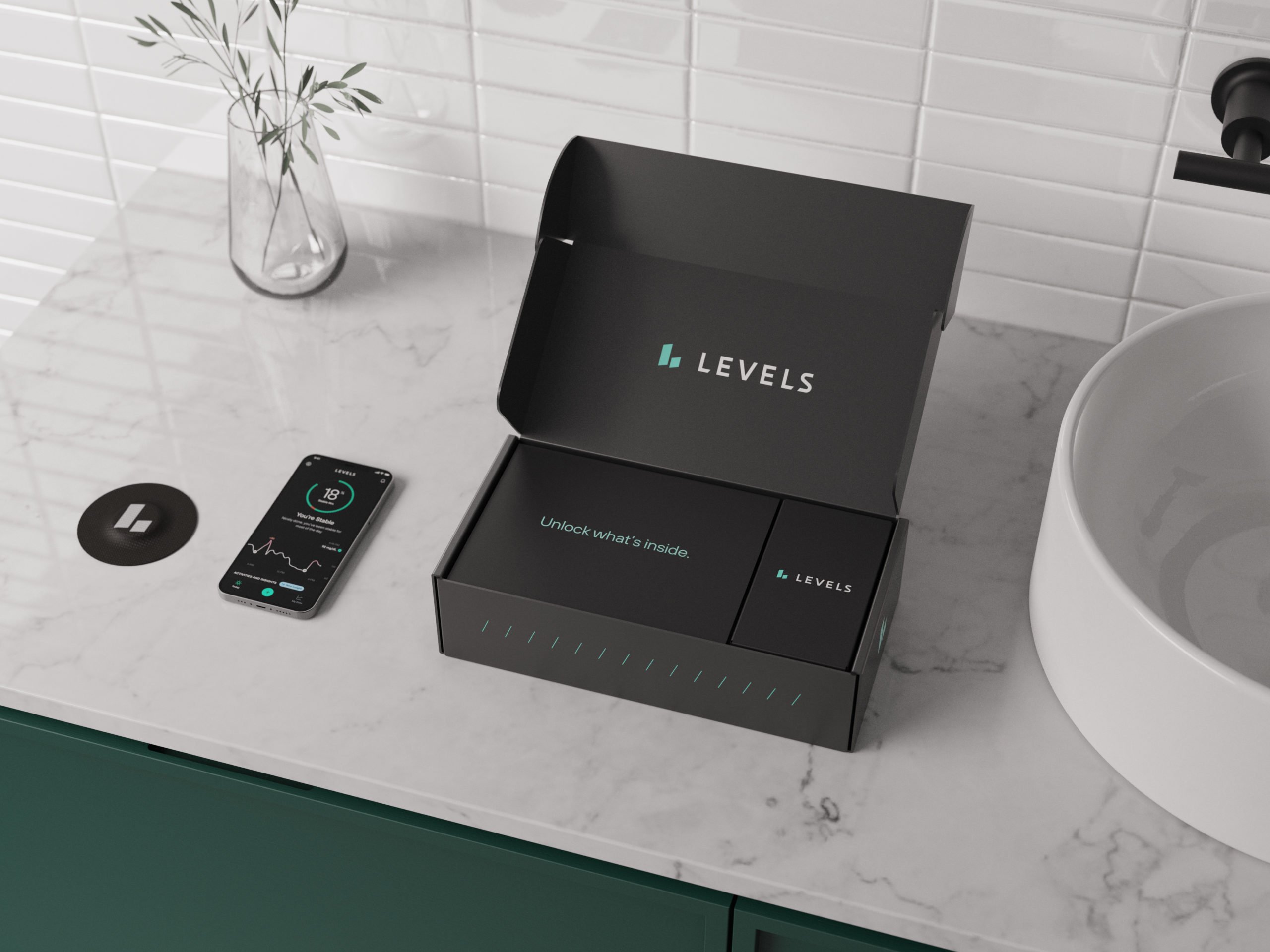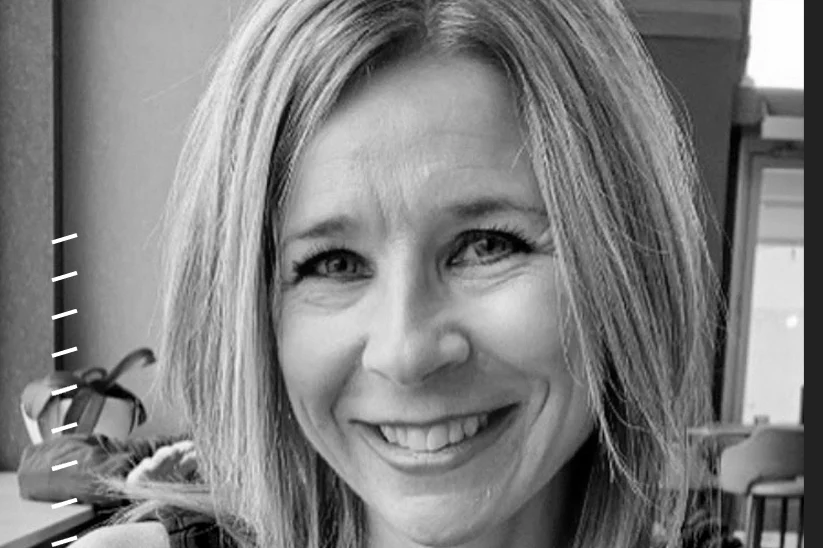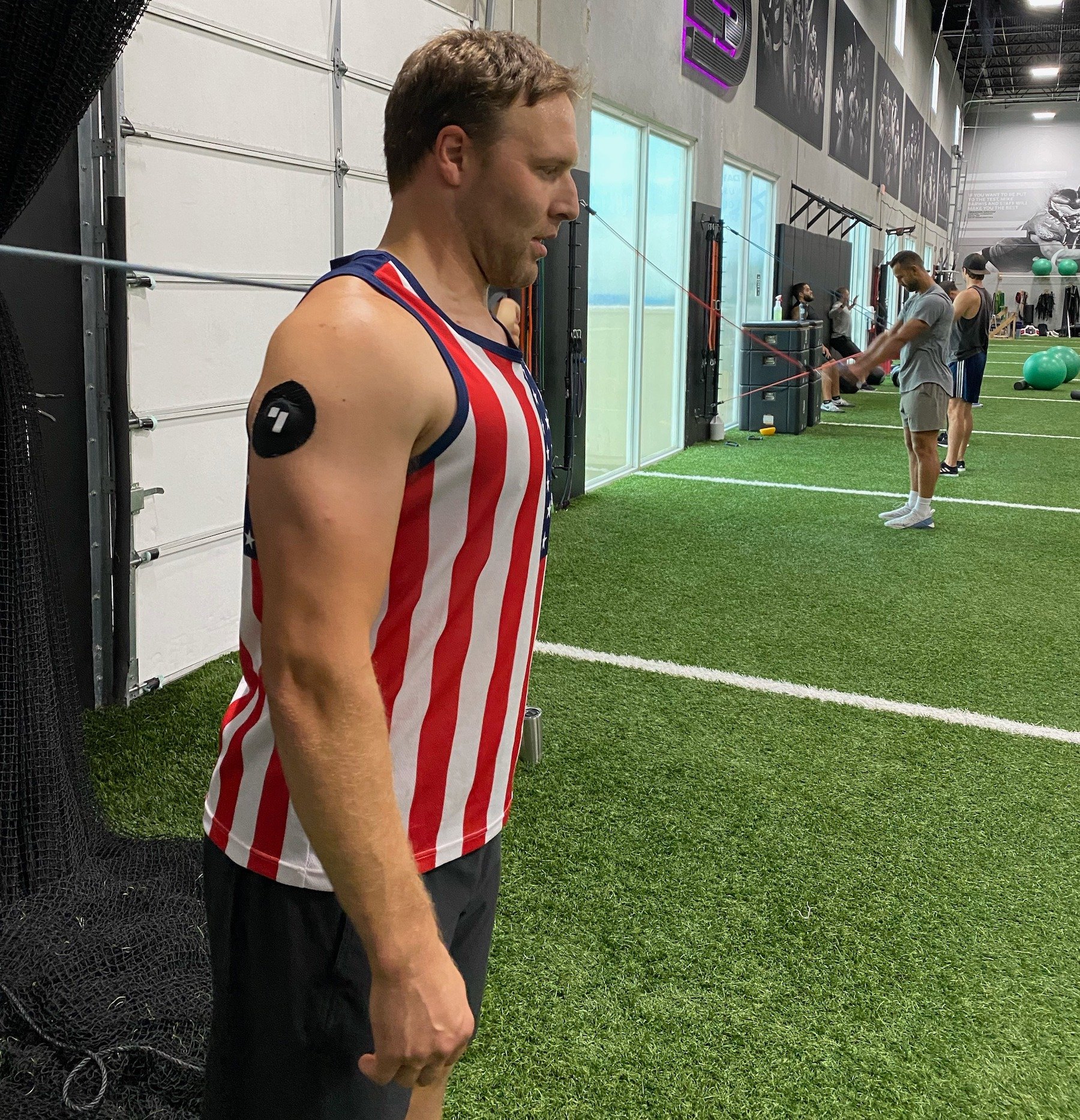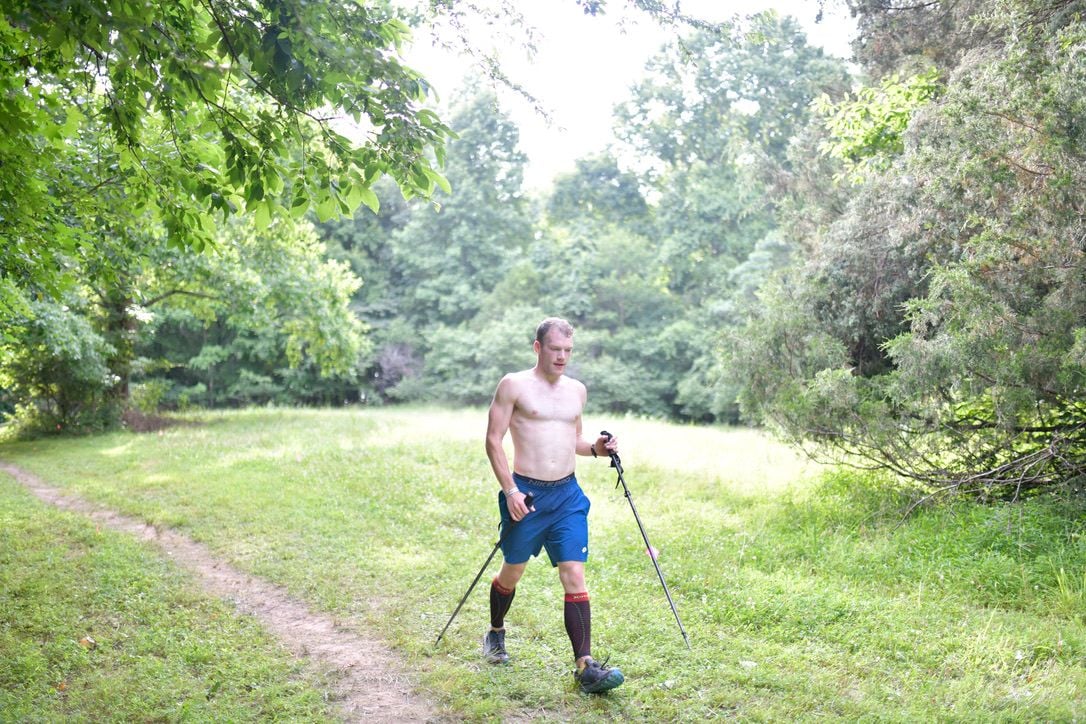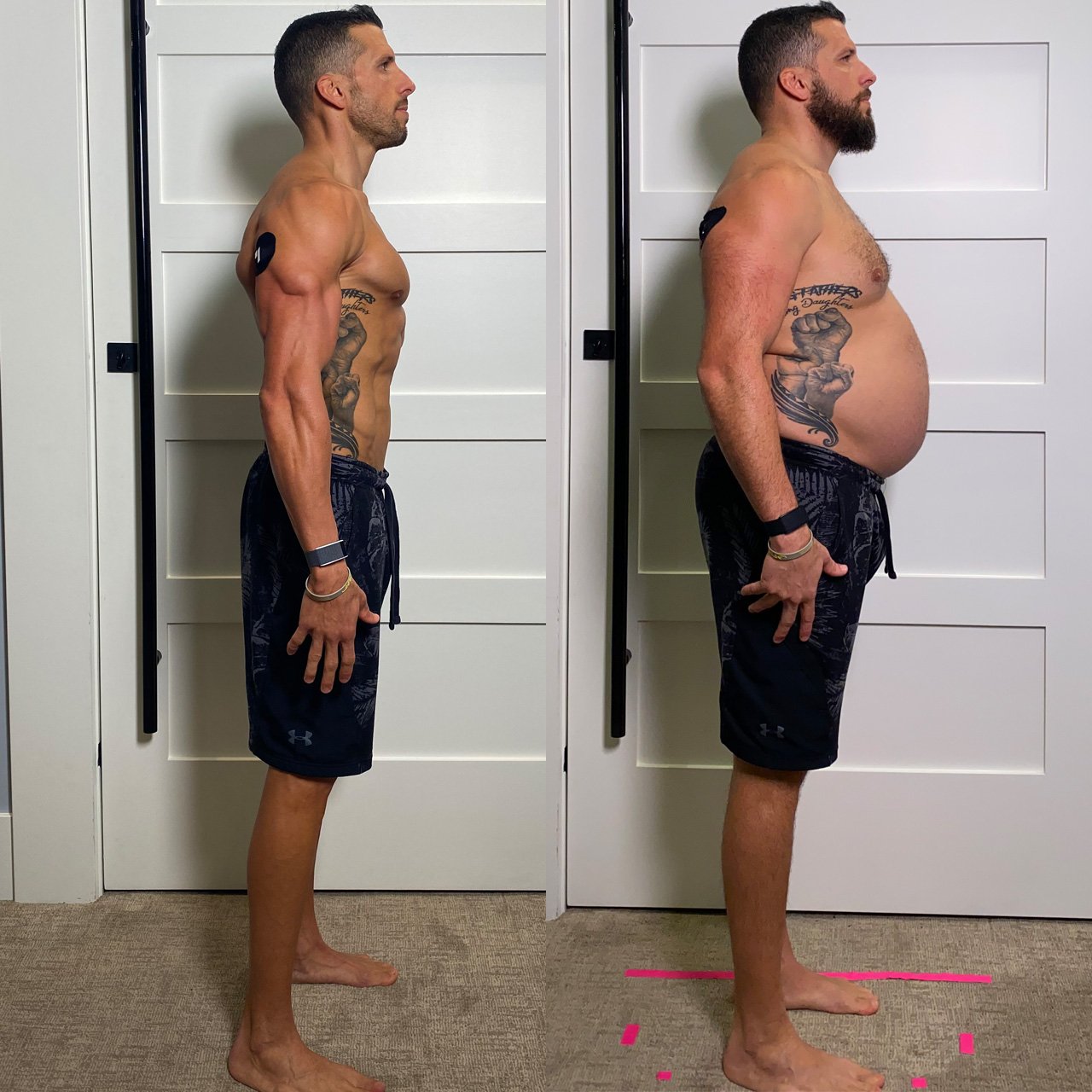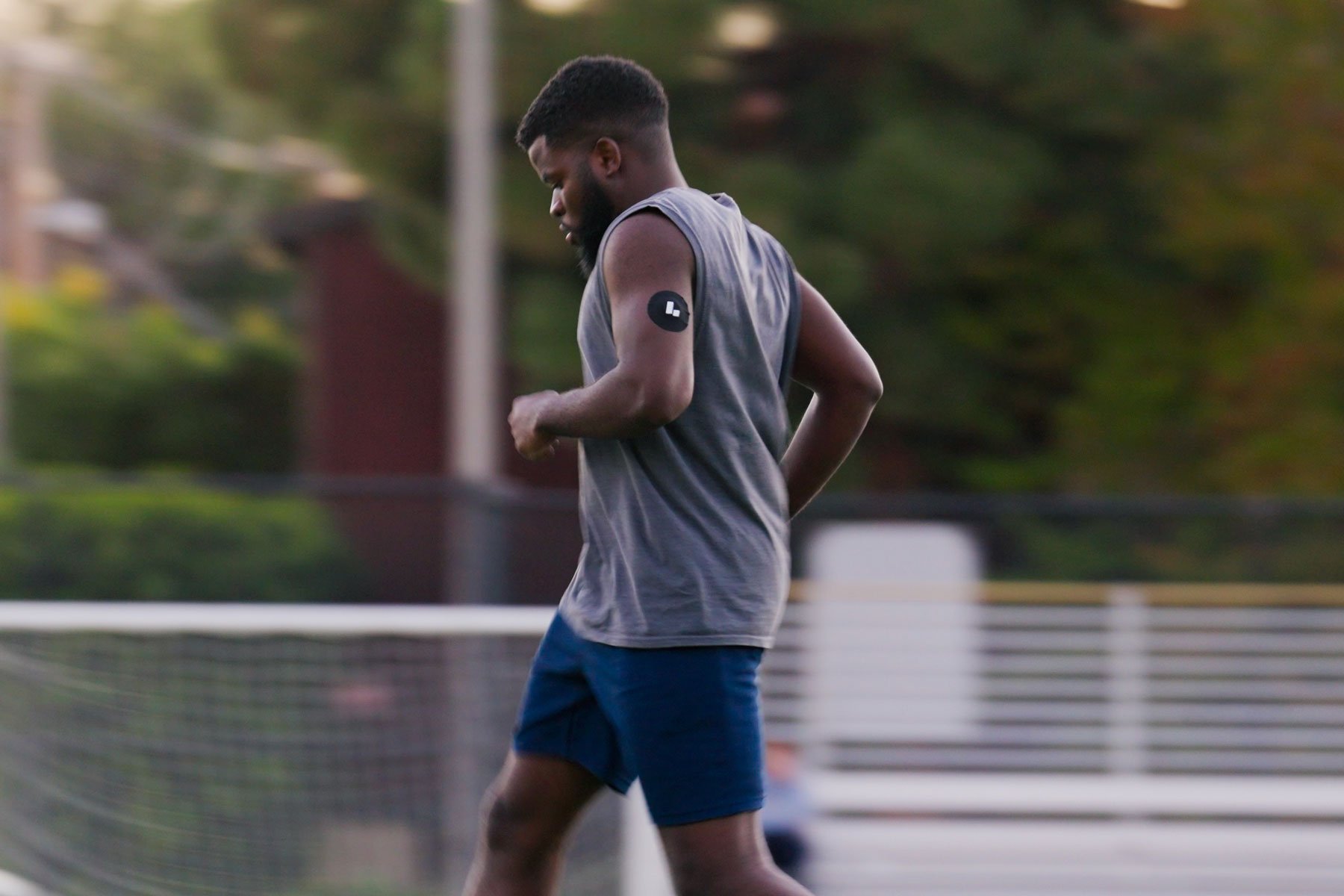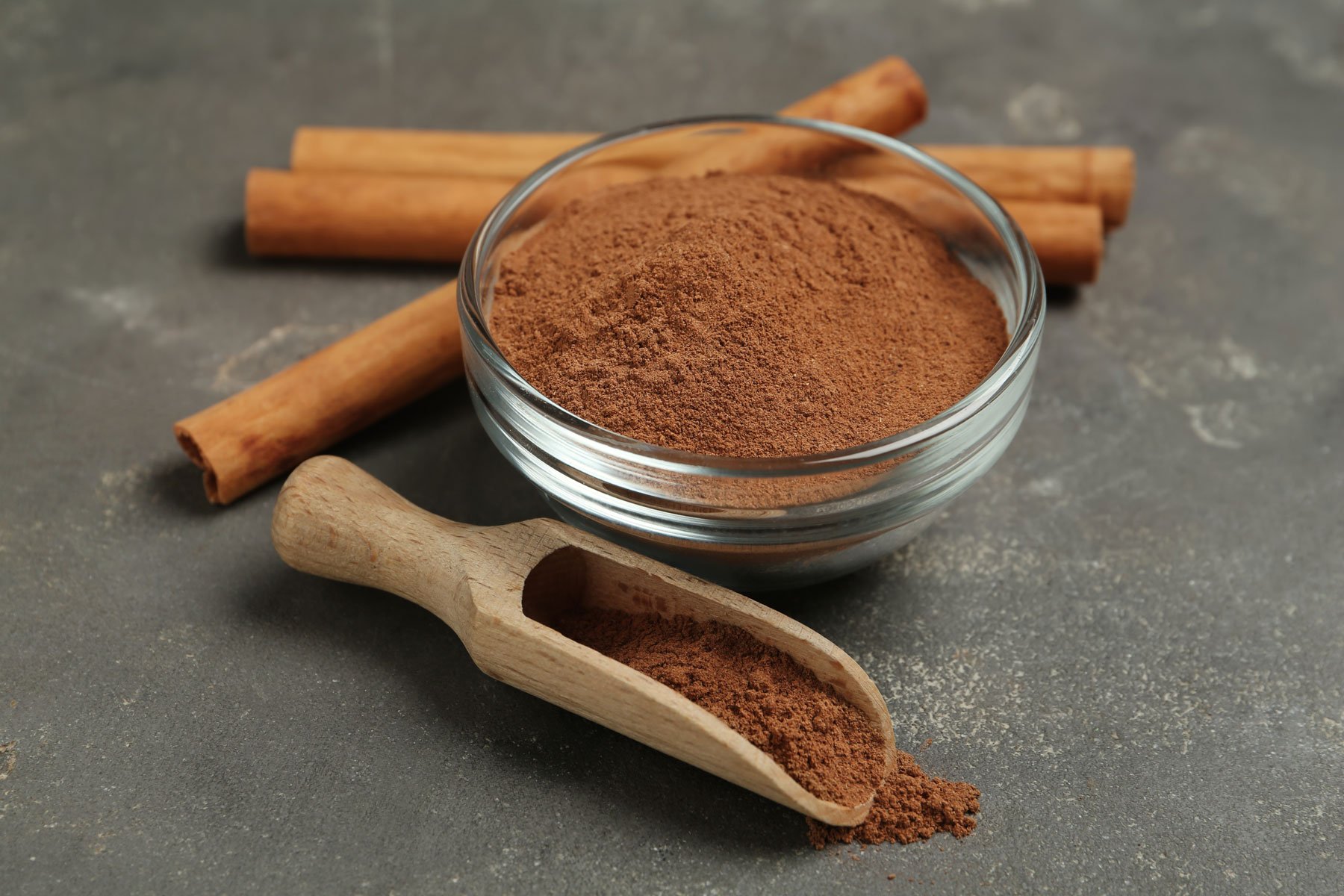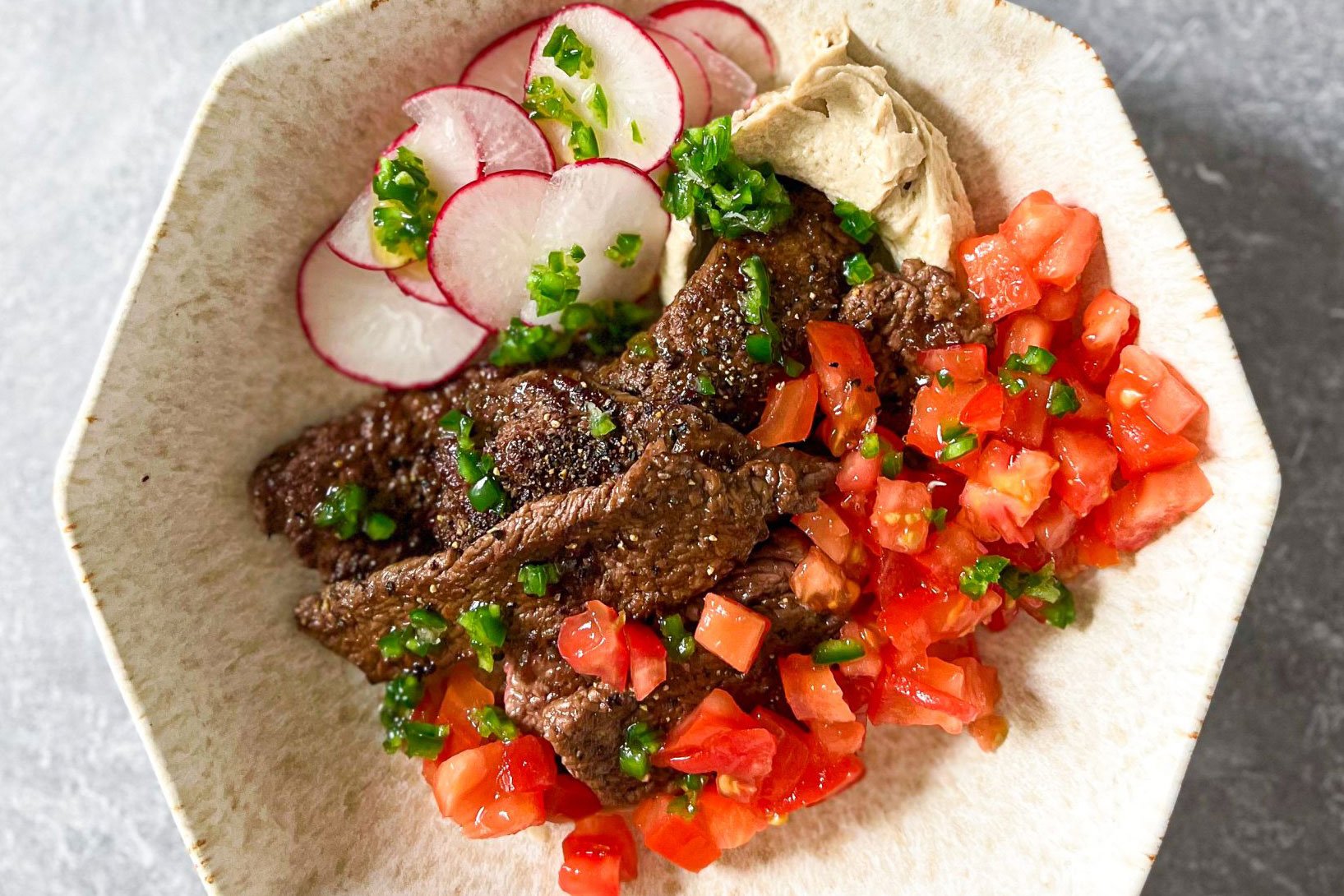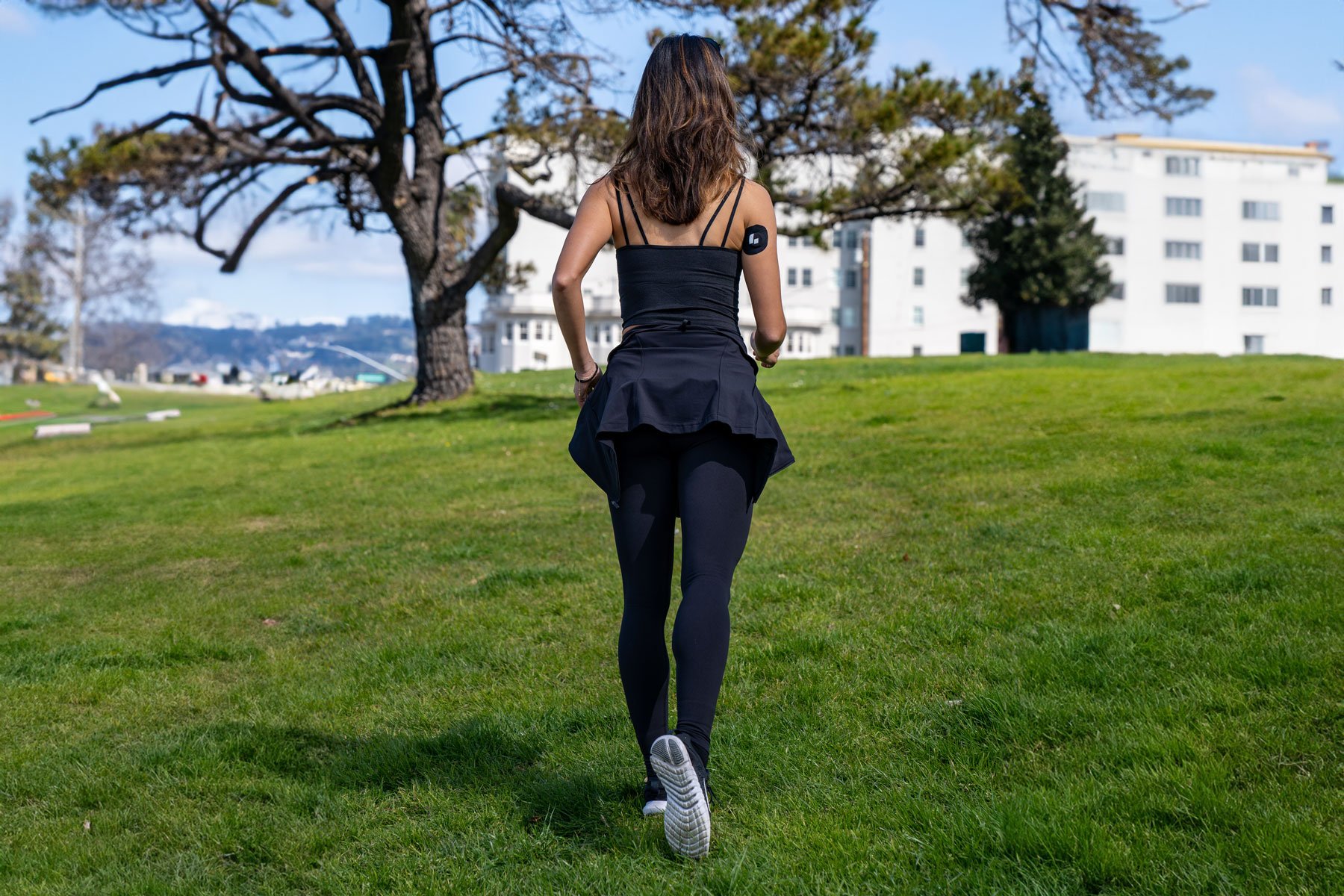“We’re basically playing Russian roulette when we’re looking at food,” says Aynul Habib, an entrepreneur with a tenacity for lifestyle experimentation and optimization. “The messages are a healthy diet are so convoluted. We don’t really know what is actually good for us and what foods will make our glucose spike, so a lot of it becomes a game of chance.”
In the summer of 2018, Aynul left his full-time job to start ZenQualify. As the increased stress of running a startup added on, so did the weight.
“I got up to about 25% body fat, and I wasn’t doing any tracking like resting heart rate or anything,” comments Aynul. “The only way my startup could be successful in the long-term is if I’m healthy, alive, and focused on running it– I became very focused on a fitness routine, started measuring my calories, nutrients, and glucose levels.”
Aynul set out on a mission to learn and gamify his metabolic health.
“I wanted to change the script from simply just buying groceries and eating into finding out what food was actually the best for me, and what gave me the most significant increase in life quality,” says Aynul. “My idea in my early twenties has been like, after I hit it big, I’m going to hire a team of nutritionists and figure it out. In reality, you can do this by yourself without spending a lot of money; all you need is the visibility of your data.”
The Lean Startup Meal
Aynul’s approach to his perfect nutritional strategy started with a search to blueprint the perfect meal.
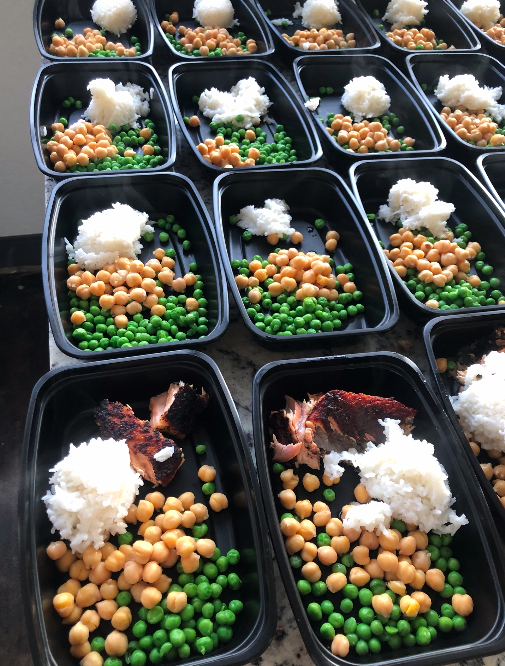
“I like food, but food variety probably isn’t going to 100x or 10x my life if I’m already eating healthy,” says Aynul. “I was looking for a tremendous upside; if I optimize one meal, I can put more time and focus into my startup or other things that may provide that asymmetrical upside.”
Aynul’s one-meal approach was primarily aimed at easing the cognitive load of deciding what to eat on a daily basis.
“The psychology of sticking to one meal at a time is that it frees up much more time for me to focus on my startup,” explains Aynul. “It’s one less thing to think about.”
Aynul began using Levels halfway through a two-month health and wellness sprint, in which he lost 20 pounds. Developing metabolic awareness, Aynul believes, helped lock him into his future maneuvers of replacing foods and iterating recipes with confidence.
First, Aynul used BiteSnaps to measure out and maximize his micronutrients in his daily meal, followed by an amplification of his macronutrients.
“I started eating the same meal once or twice a day, every day, to learn how my body interacted with a single recipe over a long period, and then I would work on iterating it for added benefits,” says Aynul.
One meal at a time isn’t uncharacteristic of Aynul, someone who describes his intense discipline as a common element in his personal and professional approaches throughout the years.
“My first meal probably wasn’t even that healthy,” admits Aynul. “It was pretty basic– just white rice, chili beans, broccoli, and chicken. It eventually evolved into sunflower seeds, chickpeas, salmon, and green beans. I basically reverse-engineered the Mediterranean diet, which was kind of cool because I discovered the benefits of the diet along the way rather than just reading an article on the Internet.”
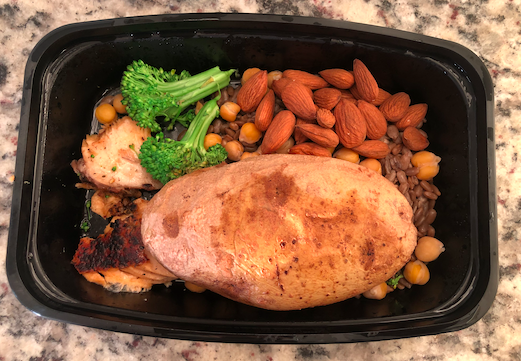
If one doesn’t have visibility into how things are actually impacting them, Aynul emphasizes, you’re basically shooting in the dark.
“A big part of America’s health problem is that we’ve normalized making important health decisions based on Googling articles, the production of which is easily incentivized by the food industry,” challenges Aynul. “The reason why so much nutritional information online is successful in promoting fads and inefficient, or even dangerous health practices, is because people can’t really tell if they work or not. So many people are basically just winging it– if they had the data, they’d actually see what works best for them rather than making sweeping assumptions about their health.”
Aynul soon learned that potatoes, regardless of their form, spike his glucose levels.
“I learned that potatoes, regardless of their form, can impact my blood sugar the same way as a can of soda,” states Aynul. “I had a baked potato that spiked me significantly. I assumed that the preparation of the potato was what made it unhealthy, like fries are bad but baked potatoes are good, but they spiked me just the same. That was probably my strongest moment of loving Levels. I also learned that most processed carbs and white carbs mess with me, but surprisingly eating white rice and beans was less of a spike than a healthy potato meal, so I stick to what’s good for me.”
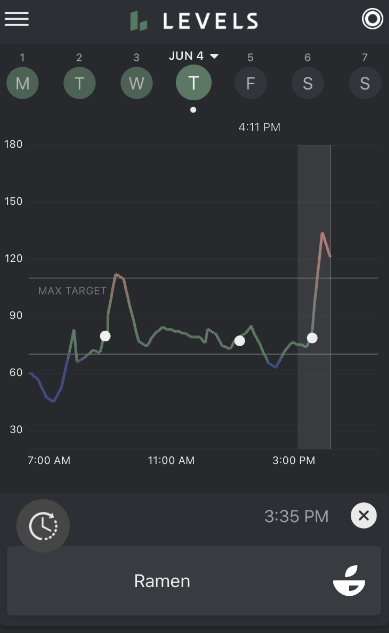
“Wearing a CGM and having your metabolic data so accessible is so much easier than checking a glycemic index at every meal,” says Aynul. “I don’t use calorie-tracking apps anymore, so I feel like I’ve self-actualized at that front.”
Learn more:
Fasting: From Zero to One
Aynul became interested in food minimalism, citing two important motivations: how many renowned entrepreneurs utilize fasting in one form or another, and how fasting may impact chronic neurological conditions.
“My family was not strict about fasting during Ramadan, so I didn’t do it until Levels made it obvious glucose spikes were bad, scaring me into it,” says Aynul. “Now, fasting is no big deal to me. I’ve been doing 36-hour fasts regularly and basically do a 24-hour fast with my one meal a day.”
By visualizing the data behind the impact of fasting, Aynul was able to draw correlations to his overall feeling, corresponding to his overall feeling and focus throughout the day.
“I genuinely believe Levels has put several years on my life. It reinforced what I was doing right, and helped me eliminate what I was doing wrong.”
“My short-term goal was extreme mental clarity,” explains Aynul. “I felt I had maybe four hours of it, but now I feel like I’m up to eight hours, and I think a significant reason is because I’m not on three rollercoaster meals per day. Not having to worry about what I’m going to eat helps a ton.”
Fasting is fairly popular in the startup community, whether done on accident or with intention. Vinod Khosla, venture capitalist and co-founder of Sun Microsystems, and Jack Dorsey, Founder & CEO of Twitter and Founder & Square CEO, regularly fast until dinner. Phil Libin, Founder of Evernote, does prolonged periods of fasting and dropped 85 pounds.
“Another pleasant side-effect of maximizing my lifestyle by minimizing food is my food costs have dropped significantly,” says Aynul. “I’m like a startup– minimizing my burn rate takes away a lot of financial strain that may come with putting everything into a startup. I’m not even sacrificing anything, I’m eating nicer, better, tastier, and healthier food for less money, and in effect, extending my odds of survival over the long-term. I’m very symbiotic with my company right now, and I feel like I’m just extending every number that matters to me.”
Aynul was motivated to close his nutritional feedback loop and close any gaps in knowledge.
“I’m the type of guy who reads NIH articles for fun,” laughs Aynul. “I’m fascinated by how fasting can impact neurological disorders. My dad had Parkinson’s growing up, and it was hard for me to watch my dad’s mental health deteriorate over three decades because he is the smartest person I know. I’ve always been paranoid about what goes on in my body– ironically, Andy Grove, the CEO of Intel, once said that ‘only the paranoid survive’ and was later diagnosed with Parkinson’s.”
“You can pretend that chronic diseases just happen, but I have a hunch most diseases are connected to our lifestyles and preventative care goes a long way. It just so happens that people start considering the impact their lifestyle has on their health until it’s too late. I noticed music and fasting were used as treatment so I thought it might be possible to minimize my risk, preventatively. I’m confident we’ll find out more of our lives are in our control and that we can do things about it earlier, but only if we have courage.”
Solving Small Problems by Solving a Big Problem
By narrowing his sights on finding his one perfect healthy meal, Aynul has been able to weed out other negative eating habits, such as eating too much sodium or sugar, and receive a wide variety of benefits such as better sleep and skin quality.
“I genuinely believe Levels has put several years on my life,” says Aynul. “It reinforced what I was doing right, and helped me eliminate what I was doing wrong.”
It’s estimated the human body needs just 500 milligrams per day of sodium to perform its vital functions, whereas the average American consumes 3,400 milligrams per day.
“By fasting and eating just one meal a day, I went from about 3k milligrams of sodium to under 1500,” notes Aynul. “It didn’t really require a concerted effort, it basically happened on autopilot. Someone might phrase quitting sugar or quitting salt like a habit, but in reality, that’s just a side effect of doing all of this other stuff like eating one healthy meal a day. Focusing on your metabolic health is like a health hack that takes care of all these other mini-hacks.”
Aynul has also reduced the conflict between slumping energy levels after heavy meals and quick caffeine pick-ups.
“In the first year of working on my startup, I was probably drinking three or four cups of like black tea every day,” says Aynul. “I realized I was basically fighting the grogginess that comes from eating food that was otherwise impacting me poorly. Instead of fighting the food with caffeine, I just needed to eat better and less.”
Through a combination of reduced caffeine intake and an overall more metabolically healthy approach to food, Aynul has also improved his sleep quality.
“Mornings used to suck, I used to wake up not wanting to get out of bed,” says Aynul. Now, I wake up, and I’m pretty Zen’d out. A good morning just changes the fabric of your whole day.”
Further, Aynul claims his skin has cleared up significantly.
I used to have minor acne my entire life, and I feel like it was a function of food,” says Aynul. My skin just looks healthier and tighter. Recently someone was shocked to learn I was 31 because they thought I was 22, and that’s just pretty awesome.”
Final Thoughts
Aynul was motivated to re-think his nutrition from scratch, and began methodically challenging his intuition by experimenting with a variety of foods and lifestyle changes.
“I wanted to get far away from bro-science and Reddit science and test things on my own,” says Aynul. “There is a lot of snake oil out there, and many people just buy into the idea of something and start to perpetuate biased word-of-mouth recommendations, and it’s tough to make an informed decision just by reading stuff online.”
Aynul views metabolic health as a stepping stone in an overall goal to live a longer and healthier life– and that all starts with one perfect meal.
“Levels is helping me close the loop and actually eat the right food,” concludes Aynul. If I only eat one meal a day, which I do, it needs to be powerful. I genuinely believe that we can live to 150 and 200 years old one day with radical technology advances, but to get there, you need to have your wellness momentum already in your favor.”
Today, Aynul is focused on his entrepreneurial ventures while making minor tweaks on the quest to uncover a deeper understanding of his metabolic health.
